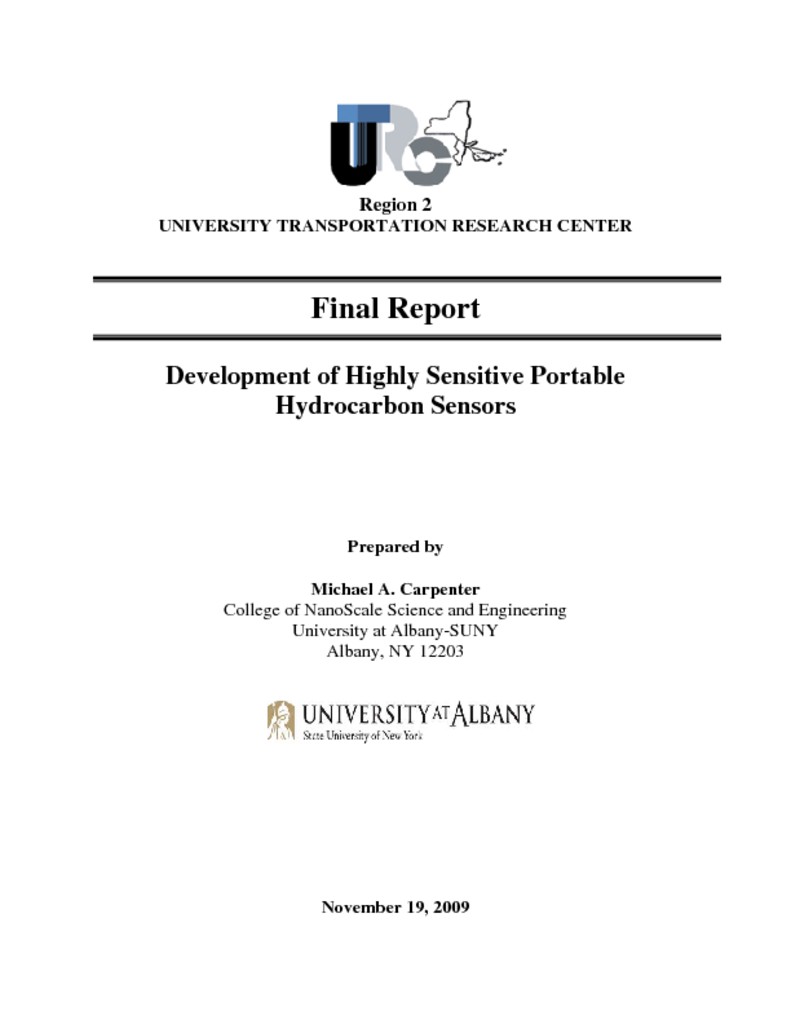A detailed investigation was performed on developing highly sensitive and portable hydrocarbon sensors using tailored quantum dot materials. These studies focused on using an Ocean Optics fiber optics based spectrometer for monitoring quantum dot arrays to detect the hydrocarbon targets. Studies were performed to determine the viability of using arrays for these studies, tailoring the quantum dot materials for higher sensitivity through energy transfer mechanisms, and tailoring the materials for enhanced stability. These studies showed that monitoring quantum dot arrays using a portable spectrometer, while a viable method, requires the reliable synthesis and subsequent reliable stability of the quantum dots. While CdSe quantum dots with tailored surface ligands were shown to be able to detect hydrocarbons with a 15ppm detection limit, the repeated synthesis and stability studies determined that these quantum dots suffer from reliability i ssues on both counts, which inhibited their use in long t erm development studies. In the absence of stable quantum dots, a study was performed which utilized ZnS capped CdSe quantum dots. These studies have proven that even without surface tailored ligands, hydrocarbons were detected within a 15-9400 ppm detection range, and moreso they showed stability over an 8 month time period. These were s ignificant improvements obtained in these studies. It is expected that through the use of these more stable quantum dots and their enhanced films, developments involving tailored surface ligands and array studies that the detection limits could be enhanced into the ppb range. A detailed study on the surface ligand length dependence was also performed and it is expected that this benchmark study will enable future developments into energy transfer enabled sensing mechanisms. In summary , while material stability issues limited the full range of studies undertaken within this program, significant improvements were made in the knowledge of array studies using fiber optic based spectrometers, quantum dot material improvements for greatly enhanced reliability, and material studies which are fundamental for t he study of future energy transfer mechanisms. With these significant gains, future studies aimed at quantum dot based hydrocarbon sensors will be enabled to improve the detection limits and the reliability of these methods. The work completed in this program has resulted in a manuscript submitted to the Journal of Physical Chemistry C and a manuscript submitted to the Applied Physics Letters journal. Furthermore, two students have graduated with their M.S. degrees during the time of this program.




